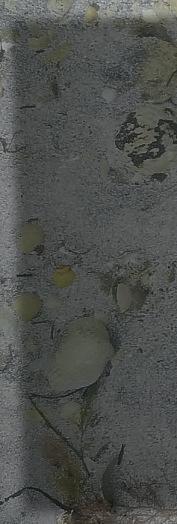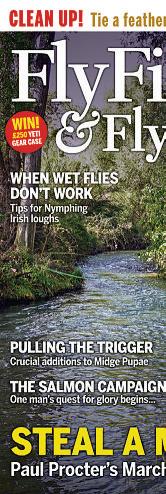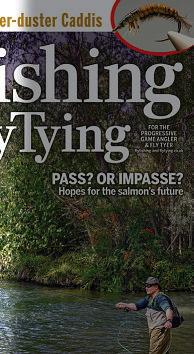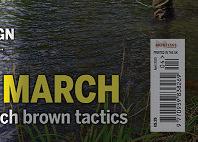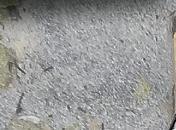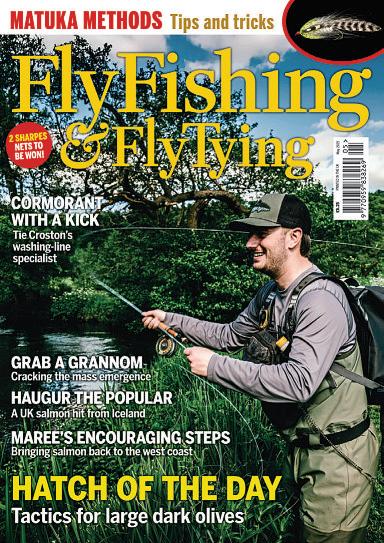




























































Like us on Facebook: Fly Fishing &Fly Tying Magazine
Publishing Editor Mark Bowler fffteditor@mortons.co.uk @FFFTMag
Publisher Steven O’Hara sohara@mortons.co.uk
Publishing Director DanSavage dsavage@mortons.co.uk
Newstrade and Subscriptions Manager Carl Smith csmith@mortons.co.uk
Head of Marketing CharlottePark Cpark@mortons.co.uk
ChiefReviewer Magnus Angus
Advertisement Sales Ian James Tel. +44 (0)7774282788 ian.fft@btinternet.com
Art Editor Kelvin Clements kclements@mortons.co.uk
Subscriptions and Enquiries
Media Centre, Morton Way, Horncastle,Lincolnshire, LN9 6JR Customer services number: 01507529529
Telephone linesare open: Monday–Friday 8.30am –5pm
Distribution Seymour Distribution Ltd, 2East PoultryAvenue,London,EC1A9PT
ISSN: 0959-8383
Subscriptions (12 issues) from: UK £54; Europe £75; Rest of the world £80;
©Kelsey Media Ltd. All rights reserved. No part of this publication maybereproduced or transmitted in anyform or by anymeans, electronic or mechanical, including photocopying, recording, or any information storageretrievalsystem without prior permission in writing from the publisher.
Printing
Acorn WebOfset Ltd, Normanton, West Yorkshire
Visit page 20 for our best offers
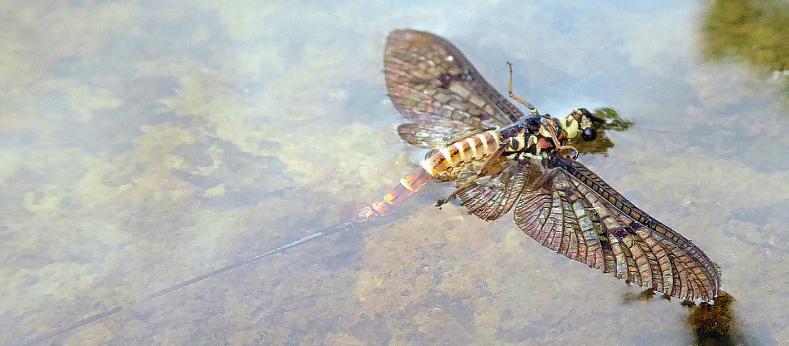
Paul Procter'sobservation and photographic evidence is put to theforewhen it comes to tying an imitation.


It pays to analysethe evidence when we tackle theimitative approach
When we headtothe water we're hardly thinking of Sh erlockHolmes, Jack Reagan or Miss Marples, but fly-fishing is definitelylinked to looking forclues, solving problems, and pinning our reputations on the likelysuspects.
We cansee it plainlyinthisissue:HowardCroston's Perdi-Cased Caddis (page 30)was tied –'on the hoof'– as adirectcopyofthe naturals he'd seen in the fishhe'd caught from the Belariver,whilstpractising for the WorldChampionships. It wasn't difcult, they were falling out of the fishwhen he unhooked them. Theobservation and subsequentflyhetied earned him tenth placeinthe competition overall.
Paul Procter's highquality, close-up insect photographs oftenhelptogivehim an edgeonthe form, imitation and coloration of theflies he ties as imitations (page 42).
Personally, much likeAdrian Freer,I'vealways been fascinated by stomach samples taken from trout; it must be the latentbiologistinme.
This is always performed on fishI'vetaken for the table, andincludeseither using amarrow-spoon, or opening up thestomach on gutting the fish. The
resultsare oftenrevealing,usually fascinating, and always inspiringfroma fly-tying of fishing pointof view. As youcan see from the wayAdrian addresses abuzzer hatch(page 38), sampling of this type has revealedthe precise moment of the hatchthe trout we re focussing on :r isin gb uz zer pupae, those suspended in the film, emerging pupaeatthe surf ace, or adult buzzersonthe surf ace.
Of course,you don'talwayshavetoresort to an autopsy; there are other clues out there (see page 22). Aspider's webwill reveal exactly what is hatching at the time of your visit–species, colourand size will all be on show,stuck in the web, likefinger-prints on adoor-knob. And, as Charles Jardine alludes, look at the slimness of the naturals –not quitethe fatthings we often tie
Just as on CSI, if youanalyseall the evidence –sampling,photographic, observation, plus some circumstantial evidence–piece together all the clues, and matchthe stagecorrectly with your fly,you'rewell on theway to nailingthe method: "Bookhim,Stavros!"
Guess it wrong,and the trout –likethe mostassiduousand pedantic of judges–willsimplyignoreit, and throwitout of court. Mark Bowler
Threethingstodothis month


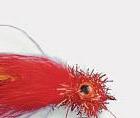
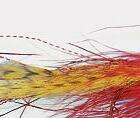

PAGE 62 TIE ASTAND-OUT SMUT
Small pattern with abigger attraction


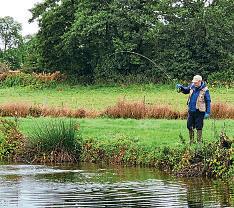
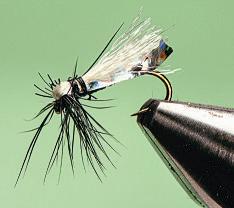



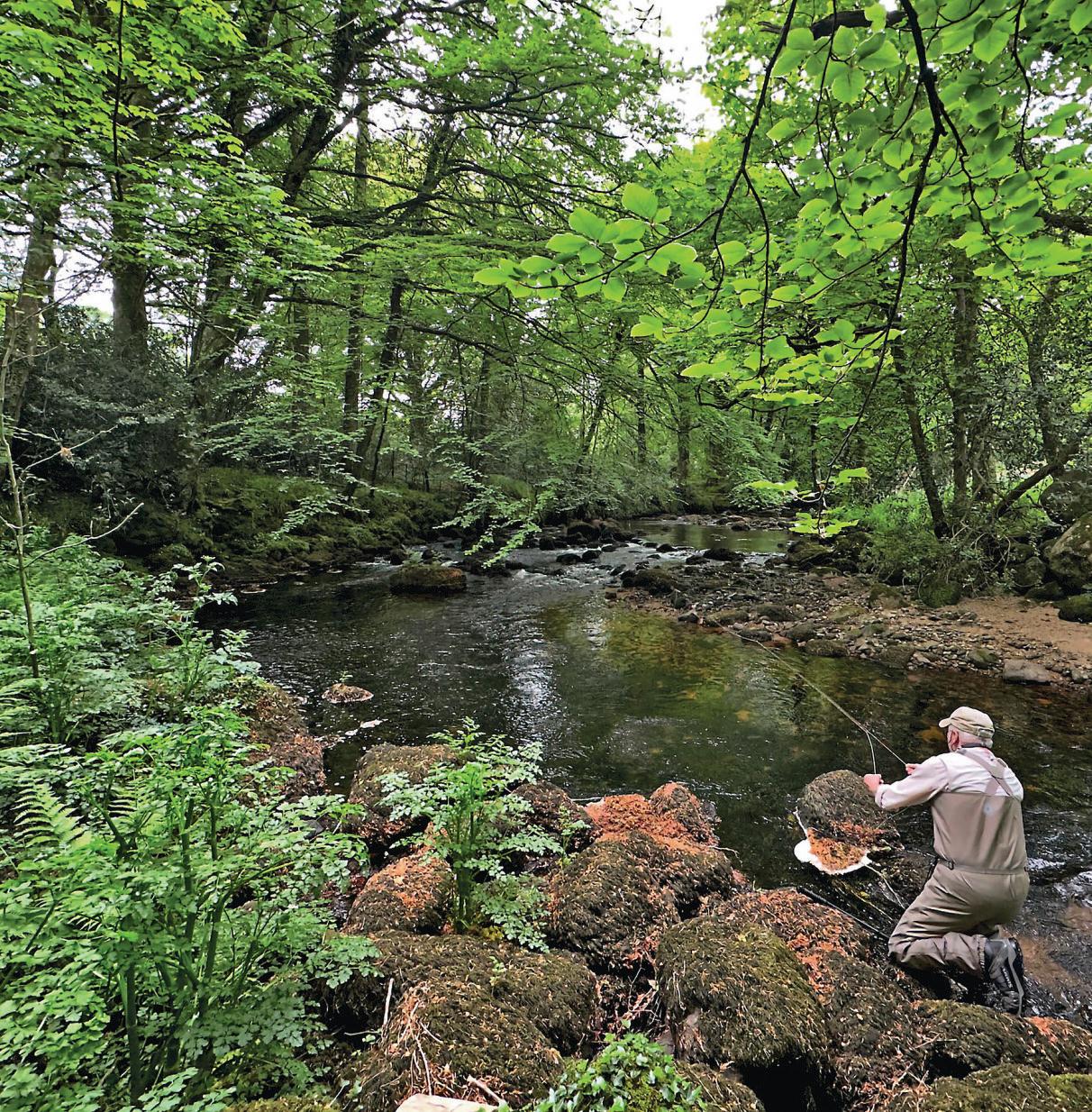
3 WE ARE DETECTIVES It paystoanalyse the evidencewhen we tackle the imitativeapproach 6 SHOTOFTHE MONTH Western promise. 9 YOUR SAY Justanumber; Sweet Caroline: Apiscatorial dilemma... and more
Petpesticidesdebatehits parliament; Severn tidal energy back on the table; Newrulescould help stop
82 LAST CAST Dipper.ByMike Handyside
64 NOTESFROMTHE BENCH
Tying the Teal, Blue & Silver –aclassic wetfly
fortrout and seatrout
72 TACKLE BAG
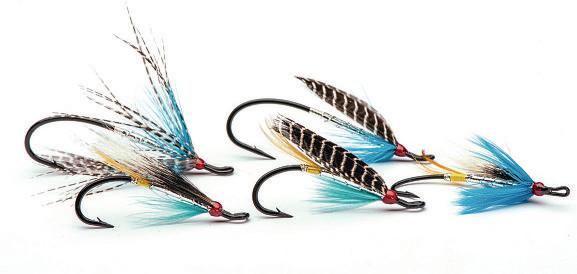
Magnus Angus reviews aUK-styled travelcase, afast-action Truefly rod and aYetigearstorage box.
76 ON THE BENCH
Magnus Angus testsa hook and hackle gauge, hackle-fibre stripping tweezers,and rubytipped bobbin holders.
Escape to Dartmoor to exploreDevon’s riverTeign.






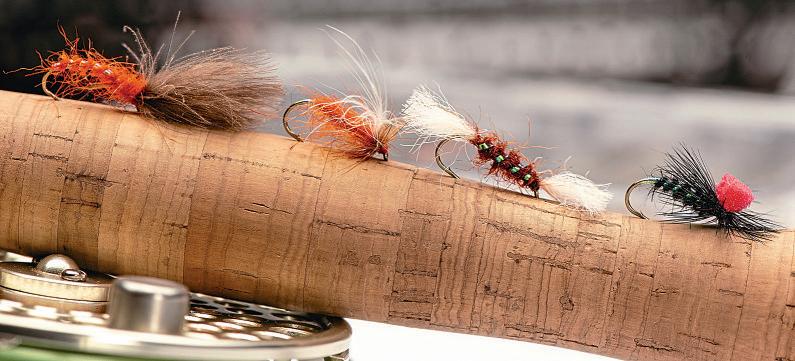
30 THE BOTTOM LINE
Howard Croston’s small Cased Caddis for Nymphing deepinclearwaterrivers.
38 BUZZER BREAK-OUT
Adrian Freer lists his options fora buzzer
hatch using studiesof trout stomach autopsies as his guide
62 STAND-OUT SMUT
HowNeil Patterson makes his small patterns abigger attraction.
TECHNIQUES
Meet the master of Bristol’sBarrow Tanks.
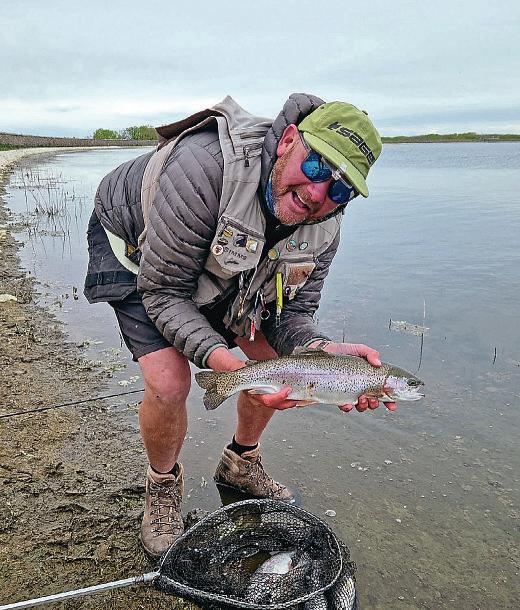
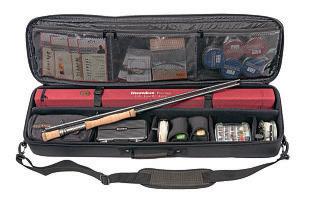
22 MASTER OF THE TANKS
CharlesJardine fishes with Bernie Weaver,a regular fixture on the small reservoirsthatlie above Bristol.
34 WHEN THEWIND BLOWS
Unfortunately forus, often the bank thewindblows ontoiswhere the action is, saysMark Bowler
42 TROUT ON ABENDER
When Mayflieshatch the sport canbefabulous, providing youare fully prepared, sayPaul Procter.
50 BEND IT LIKE BECKHAM On small stillwatersand reservoirs, Dave Heseltine likes to present his fliesin atotally diferent wayto the norm.
Tying close to Nature.
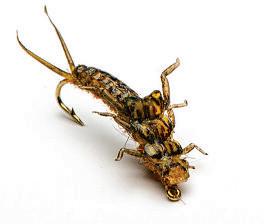
16 THE MOTHER OF INVENTION
Simon Sinclair explains whywe’ll neverfind the perfect fly
54 ESCAPE TO DARTMOOR
Neil Yeandle and Richie Blakeguide us to the richesofDevon’s river Teign.
80 CLOSETONATURE
Winnersofour December fly-tying challengetotie a realistic Nymph.
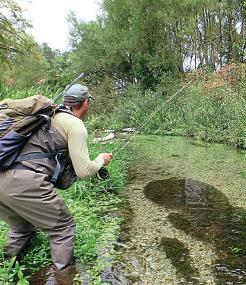


Barrie Finn to ok this phot oi nC o. Armagh, Ir eland. “T ow at ch the sun dip behind the dam wa ll on as pring ev en ing can mak e Seag ahan one of the mos tb eautiful and magical places ,t ob e” sa ys Barrie .
● Shoot a‘ Shot of the Month’ and win a ye ar ’s sub sc ription to FF&FT Se nd yo ur phot ot o: ffft edit or @mo rt ons .c o. uk





























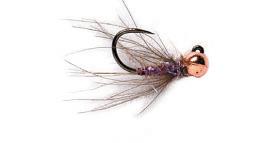























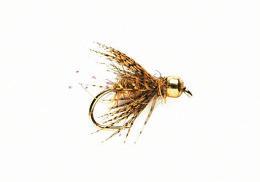






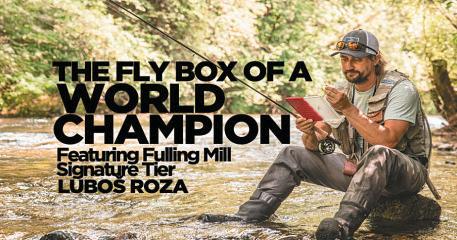


















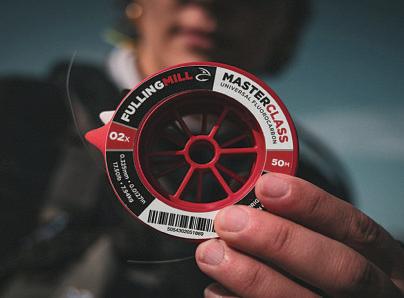
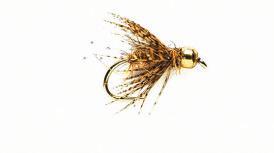















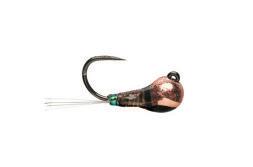











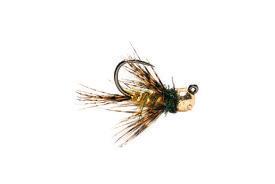






























Write to: The Editor,FF&FT,The LocusCentre, TheSquare, Aberfeldy,PerthshirePH15 2DD,UK.
Email: ffteditor@mortons.co.uk. Please includeyourname andpostaladdress with all correspondence
Fuelled by the accountof Georgina Ballantine’s wo nd erful Salmon record (March issue), Igot to daydreamingabout my favouritesalmonflies, andfish caught and lost on them.
Possiblyone of the best minimalist, streamlined, wonderful to fishand tie, althoughnot the easiest, is theLadyCaroline.
Itie mine with athree-layer bronze mallard slip-wing for cohesion; they’re not bad, but I’ ms ti ll tr yin gt og et them right.Would it be possible for on eo fy ou re xc el len tt yi ng demonstrators to writeanarticlewithstep-by-step pictures and descriptions dedicated to the Lady Caroline?I’m certain many FF&F T flytyers would sincerelyappreciate an article on the Lady Caroline. PeterJackson, via email.
Astrange experience occurred to me this spring.I nd eed ,a pisca torial dilemm a...Afte r twofruitless hours on my Welsh Bordersriver,I startedtocatch small fish. Thesize of thefish grew, as Irackedupeleven, plus an out-of-season grayling.The 15-inch trout wasa cracker. Later, and in exactly thesame place,Ic astt oas imilar ri s e. Could it be my previous capture, back on station?
Fi rs tc as t, up it came , however, Iwas prettysure it took the ti pp et kn ot on my leader. This wascompounded by ‘freshair’for asplit-second before as oli ds trikeo nt he l ine.Asitt ook off down the po ol, It houg ht Im us th ave
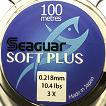
The writer of the Letter of theMonth will receiveaspool of 13.7lb Seaguar Soft from Fordham &Wakefield.

This morning,I opened my letter from the Environment Agency expecting my new fishing licence. What Iactually foundwas anumberona pieceofpaper Ic alled the ag ency and askedwhatI wassupposed to do with it?
Theladyonthe other end of the line suggested Ikeep it with me when Igofishing Ie xp lained thatwat er and paper are not exactlythe best of friends a nd wo uld soon be nothing other than mush in my pocket. Shesaid that
foul-hookedmy original trout.
Isoon realised this wasf ar big ge r, and it seeme ditw as hooked towardsthe mouth.
After ahectic fight of about eightminutes, thesight of the huge wild trout in the net –some 4lb8oz –confirmeda previous known customer of lastspring!
Andthe fly’s position?Itwas hooked lightly in thetop left lip!
Of cou rse ,n oo ne can be ahund r e dp er cento nt hese th ing s, but, Ia ms ur eI am right in thinking this is what happened: the fishcame up and rose 18 inches fromthe dryfly. Then,there wasa split-second between my expected contact and actual contact on the strike.
perhaps Icould makeanote of it on my phone.I explained that, wheneverpossible,Ileave my phone at home or in the car, so as nottobedisturbed by it.
Isuggested that,likemany cl ub s, they sh ould ha ve replaced it with adigital card thatcould have been shown on phones, preferablywitha photograph, or for dinosaurs likeme, printed of,laminated andplacedabout my person.
Yousee,asIexplained to thelady, ourcurrent licence is plastic-coated and signed on the back. Nowthatit’sjusta
In addition,the hook-point was afraction into the outsideofthe trout’slip.
Imagine atrout rising at 90 de gre es to as traig ht ti ppet , having go ne for the knot 18 inches from thefly. Thelineis then lying across the insideofits closed mouth. It makes perfect sense if the fly is then pulled into the very outsideofthe trout’slip on thestrike.
Isuspect this is af ar more common occurrence than we realise.Whether it should count or not, Icarelittle, as thelikelihood is Icaughtthis same fish last spring!
Mike Handyside, via email.
number it could belong to just about anybody. It won’ttake long for the ne’e r-do-we lls within our sport to realisethat they can justtextthiscodeto their mates and, as long as they’re not all together,they can alluse it,saving themselves afortune andcosting theagencyone.
HowIwould have lovedto have been sittingatthatmeeting when someone piped up and said, “Hey,here’s agood idea ”.
David Lawlor, via email.
Iarrived home ashorttimeago from af ishing tript oa local small stillwater to findapackage on the doorstep. It wasfrom Cochy Bonddu Books.
Iwas surprisedand delighted to receive ac op yo f TheF lies That Trout Prefer,apparently as awinner of arecent FF&FT competition.
Th ank yo u! Is hall lo ok forwardtoreading it,and using it as areference book
Separately, my thankstoyou andtoyourteamfor producing atop qualitymagazine. StephenNewton, via email.















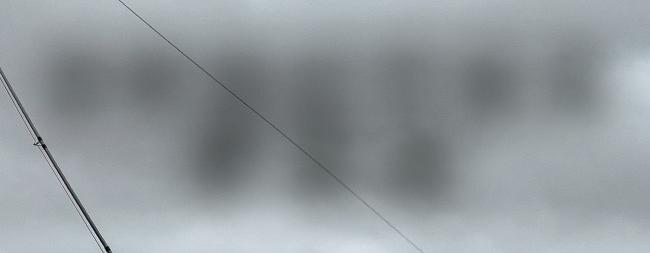









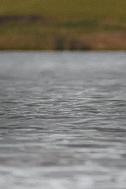

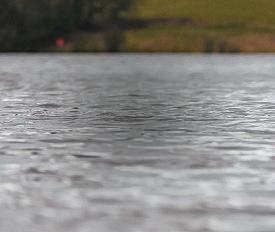




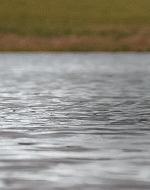

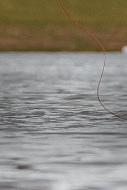
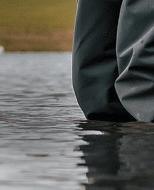













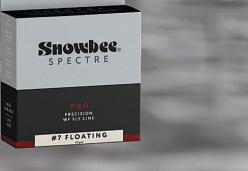
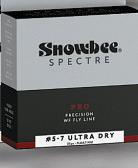
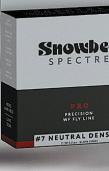








Wensleydale’sWalbran
Ir ea dw it hi nt eres tC harles Ja rdine ’s artic le ,‘ We ns leydale’s symphony’(April issue). I, likeNickHall the Tanfield Club archivist, have researched Francis Walbran extensively In 200 9, Ia rranged to meet Walbran’s grandson, Charles, in Riponand Iinvited Nick to come along
We all then went up to West Tanfield where Charles placed fl owe rs on his grandf at her ’s grave on the 100th anniversary of hisdeath (see photo,left)
Being an avid researcher of all things to do with North Countr ygame angling,Inoticeda couple of errors in thearticle Thefirstedition of John Jackson’s boo kwas publi sh ed in posthumously in 1854,hehad died in 1853 and so the book was completed by his friend,Thomas Hanley Barker, adoctor from Hovingham.
Theother error is referring to RegRighyni as “Lancashire’s champion of the grayling”. Reg
Impasse
Ireadwithinterestthe excellentarticle ‘Pass?OrImpasse? (April issue), written by Professor Eric McVicar
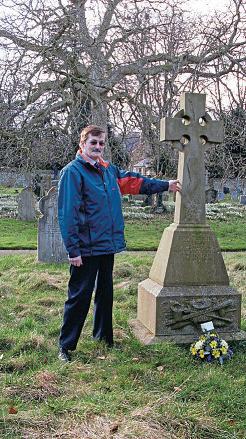
will be spinning in hisgrave as amore staunchYorkshireman couldn’tbefound –hewas born in Bradford. John Austin. Author of Game FishingInThe North Country, SherburnVillage, Durham.
Ihaveoften wondered how Scottish&Southern Electricity(SSE), or whatever theyare called now(OVO–Editor.],got away with allowing no flowat all down some rivers, such as the Perthshire Garry, andthe Blackwater belowGlascarnoch Iw ould ha ve tho ug ht th ey wo ul dh aveh ad al eg al
Dr yflies and leader length
Sometimesadding tinysections of extratippet can makethe difference between success and failure
Ifinally came across my first hatch of the seasonthe other week: atrickle of large dark olives, which came down the river in tinyflushes, bringing up some trout on the farside of adeep corner pool every tenminutes or so
Knowing mine would be the first dryfly thesefish would have seen foratleast six months,I wasprettyconfident of my first fewdrifts.
Hmmm! Despitelittle bursts of rises, afew subtle flychanges, and presumably winter-hungrytrout,my carefully presented fliesonmy 3-weight were ignored.
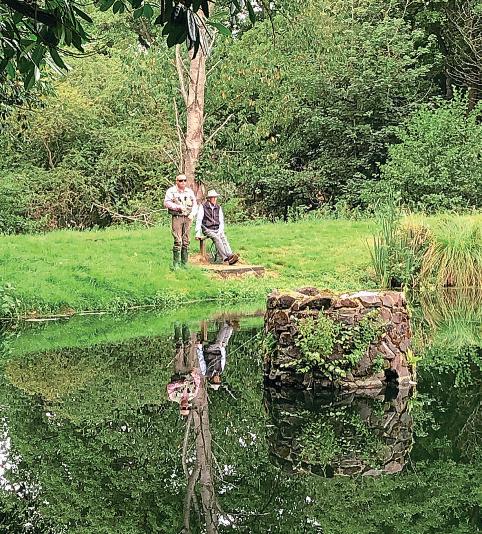
ob ligation to allowatl easta compensation flowatall times. Isee that theGarry hasbeen somewhat reinstated(although not from the ori ginal wa ter source )h owe ve r, no tb efore time!
Incidentally, Iwouldcorrect the author regarding the river Blackwater belowGlascarnoch, whichisactuallyinRoss-shire not Inverness-shire Mike Donnachie, Dingwall.
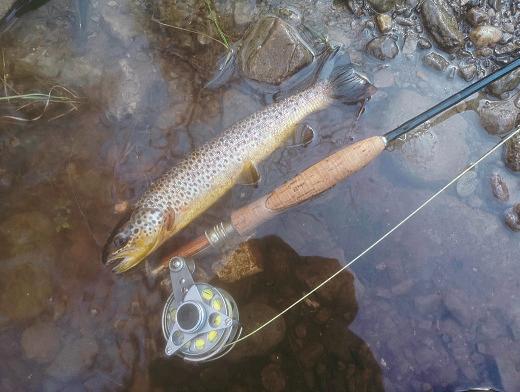
This cornerhas adeep far bank, and the current was pushing inwellafter rain afew days previously. I’veswum

in this pool during very hot, dryweather (I’m not the keenest of wild swimmers!), and Iknowthere’ssome large
bouldersatthe bottom here (becauseI’vestood on them) that causeanupwelling from the flowthat poursinatthe neck of thepool. The main current alsodeflectsoffthe far bank, causing aseamabout twofeet intothe pool’sfar edge;the better fishcould be seen occasionally rising in this seam. In addition, therewas a back-eddy between my position and the fish, pulling more than usual in the rain-fuelled, elevatedflows. Wasthis complexmixtureofcurrents causing my fly to misbehave? Wasmicro-drag putting the fishoff? Something wasdefinitely wrong; my dryflieswere ignored with disdain.
Dryfly alwaysthrowsupa fewchallenges, but Iwasn’t expecting one so early in the season. Ihad to puzzlethis one out
...R ea dm or eo nt he FF&F Tw eb si te: www.f ly fis hing-a nd -f ly ty ing .c o.uk/blo gs



Got astory? E-mail the news desk at: rollingriver@mac.com or telephone: 01887829868.For news as it happens visit
OURESSENTIAL ROUND-UP FROM THE WORLD OF FLYFISHING AND FLYTYING
Following renewedconcern from anglers and conservationists, the issue of deadly, invertebrate-killing chemicalsin pet products has been raised in the House of Commons by Rachel Gilmour MP.Havingbeenbriefed by constituentand former vetDr Ueli Zellweger, whohas covered thesubjectin FF&FT,the serving LibDem MP for Tiverton and Mineheadinitiated amotion entitled “Veterinar yProducts in Waterways”.
Gaining25minutes of discussion time,itprompteda rangeof responses and praise for Gilmour from all contributors,along with acommitmenttofurther investigation. Mentioning Dr Zellweger by name,Gilmour told the house thatitwas “hightime that we give this topic the scrutinythatitso desperatelydeserves.”
Speaking about various pet products and lethal insecticides such as fipronil,she saidthat thesewere“powerful killersand

Highly toxic invertebrate-killing flea and ticktreatments on pets are getting into our water systems.
thepicture is notpretty”,adding that “one monthlyflea treatment for alarge dogcontains enough imidacloprid to kill astaggering 25 millionbees.”She also raised the po intthatalackofaction could mean higher water bills for consumers via clean-upcosts.
Ma kin gap owe rful case , she told fel lowM Ps thatt he
su bs ta nce swer e“ wrea king havoc”, outlining howthe impact wasspreadnot only via pets swimming in rivers, but through ourwater system anddrains.
Am ong th er es po ns es from other parliamentarians, Falmouth MP JayneKirkham raised the pointthat“some pet owners maynot be awareofhow badthisis”,and called forbetter guidance and clearer warnings on packaging.
Emma Hardy, Labour’sParliamentaryUnder-SecretaryofState for Environment, Food andRural Afairs, gave acautious response to end the de bate.While sh e would not agree to anyimmediateaction thatcould leadtoaban or furtherlimitsoninsecticides, Hardysaidthatthe government had“commissioned scientific researchtoinvestigatehow these subs ta nc es re ach rive rs and streams” andthatitsupported calls for review, as well as greater educationfor petowners.
“Wer emain de dica ted to addressing theenvironmental impact of veterinarymedicines, andwillcontinue workingwith stakeholders,” sheconcluded. “The public want clean water and we aredeterminedtodeliver it.” Fo llo wi ng th ec om mo ns debate,the topicwas also raised in theLords by theEarlofCaithness, whoasked directlywhat the authorities proposed to do about “restricting tickand flea treatments containing fipronol or imidaclorpid to prescription only, in thelight of evidence of theirhuman andenvironmentaltoxicity.”DEFRA is setto respondshortly.
In Switzerland, much lauded for cleaning up itsrivers in recent years, theissue is also ahot topic at present. Rules on pet pesticides are expected to be tightened following recentdebate, with Swiss parliament awaiting theresults of an environmental impact study.
EXPERTS RECOMMEND SMALLER SCALE “LAGOON” MODEL FOR POWER GENERATION,WHILE FUTURE PLANS AS YET UNCLEAR
Ove rad eca de after power-generation plans we re rejected on the Severn estuary, voices from the energy sector are nowurging arethink from UK and Welsh go ve rnmen t. Wi th Bri tain’s powersupplybrought into sharp focus by the climate crisis and warinUkraine,calls forrenewables are increasing, with the Severn said to have the largest tidalenerg potential anywhere in Britain.
“Weneedtoget seriousabout howwec an makeu se of our natural resources,” said Severn EstuaryCommission chair,Dr
AndrewGarrad. “Weneed to actnow to ensure we candeliver the energwhen it is needed and at the same timesafeguardthe environment.”
It is the very safeguardingof marine and riverhabitatsthat will be watched anxiously by anglers as plans develop, but Welshgovernmenthas already give ni ts ba ck ing .O riginal proposals fora 'SevernBarrage' we re reje c ted by min is te rs in 2013,w it he nv ironmental impacts inclu ding the threat tomigrator yfishakey factor
FF&F T wi l lb ri ng up dates as newplans materialise.

Using infra-red scanners and special cameras, 21st centu ry fish- co unti ng technolog on the riverTweed has revealed encouraging results for2024, with the secondhighest number of salmon yetseen by such eforts.
TSituated on weirs at three tributaries, the t echn olog ys cans everyfish that passes. 2,168fish were recorded on the Gala alone, well abovethe average of 1,363, whilethe Whiteadder showed 890fish,compared to an average of 628.
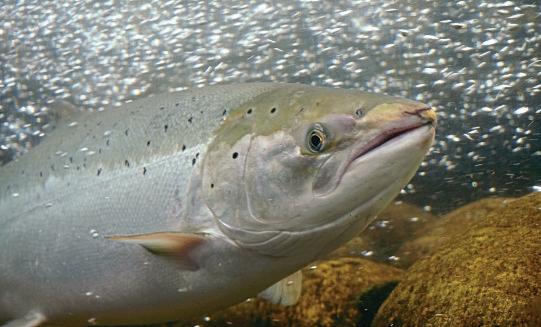




Tweed high-tech counting systems showed higher figures for2024season. Ph oto: is
he Welshgovernmenthas published itsfirstset of findingssince Control of Agricultural Pollution (CoAPR) regulationswereset outin2021. Attended by AfonyddCymr u (AC), whichrepresents six rivers trusts across 33 waterways,the measures have beenwelcomed, despiteongoing question marks over compliance and enforcement. Chaired independently by Dr Susannah Bolton, such reviews willnow takeplace every four years.
Of keyconcern is the storage and spreading of slurry, which has previously led to catastrophic poll ution incid en ts. Un de r revamped rules, farmersmust have five-month slurrystorage and adhere to an annual closed
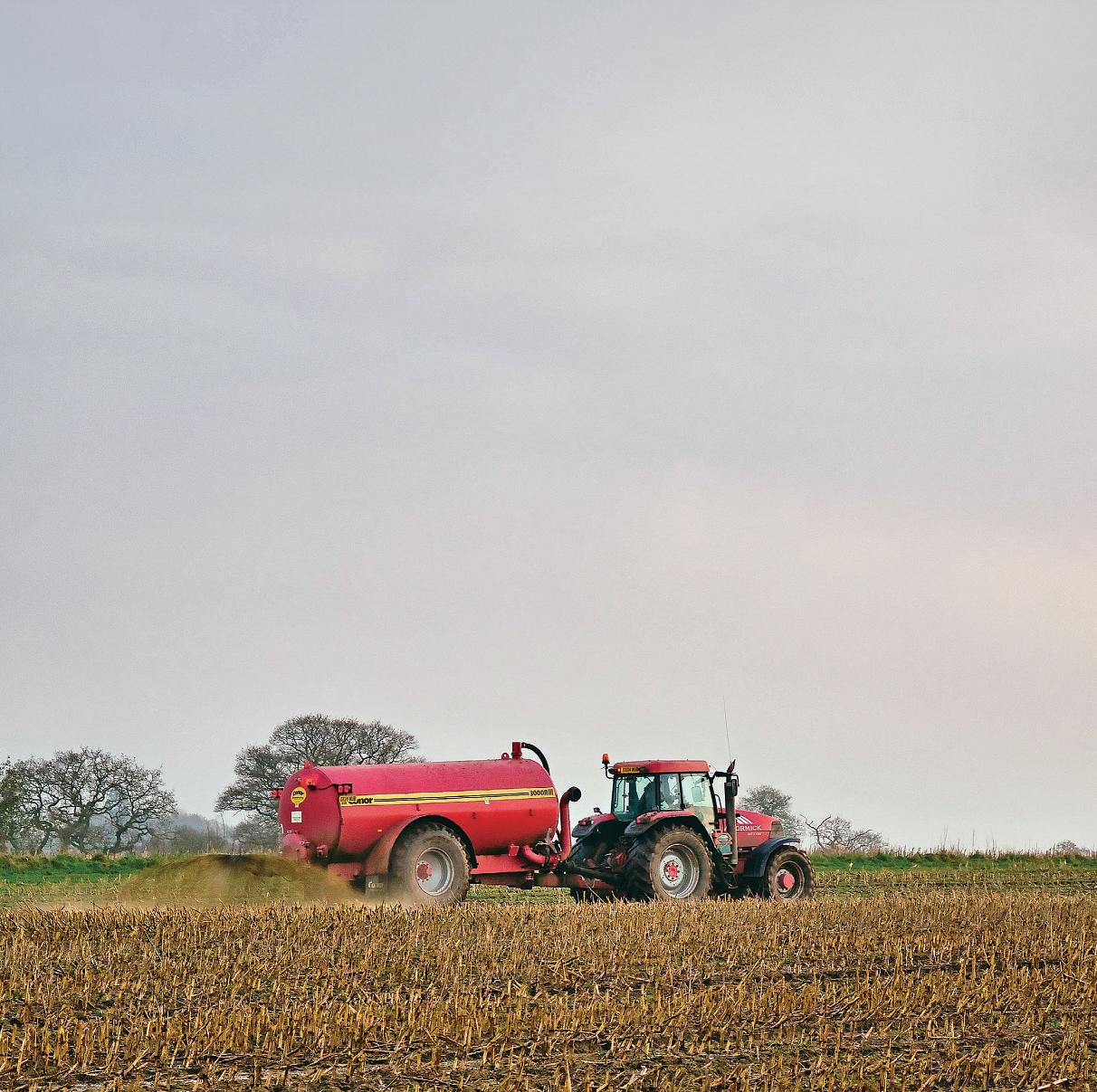
period for spreading between O cto ber 15 and Ja nu ar y1 5, althought he effective ne ss of this is hard to judgeasit has only been in forcesince August 2024 Alongsidemandatoryinspections for pre-1991 slurrytanks, and the covering of newstoragef acilities, AfonyddCymru say thatnew measures could “reduce the riskofboth air and waterpollution”.
While anglers will welcome su c hs te ps ,h owever,itw as acknowledged thatthe closed seasononslurrywas “difcult and contentious”for farmers a nd t hatflexibilit ym ight be required, for example around adverse weather conditions or where there was“minimal risk of nutrientlosstowater”.
Compulsoryuse of precision slurryspreading and measures to preventsoilloss were also recommended, alongwithmoves to support newand innovative fa rm ing me th od st hatc ou ld furtherhelpmitigaterisks.
In spiteof“ broadlypositive” signs, thoug h, cam pa igners insistthatitistoo early to celebrate, giventhatmonitoring and ch ecking for compl iance are ofteninadequate.
“Welshgovernmenthas said th at al lt we nt y- th re eo fD r Bolton’s recommendations will be taken forward, but there is much work to be done,” said as ta temen tf rom Af onyd d Cy mr u. It ad de dt hatwhile the next reviewwou l dc ome around quickly, “investigations
and consultations need to be concluded, changesimplemented and ev id ence record ed we ll before then.”
Keymeasures arising from the newregulations are:
•Compulsorycheckstobemade on pre-1991 farm slurrystores.
•A 'closed season' on slurr y spreading from October 15 to January15.
•Furthe rm eas ures recommended to preventsoilrun-of in to ri ve rs, and ad dress “regulatorygaps” on nutrient management andother areas.
•Campaigners “broadlypositive” butwarnthatmonitoringand compliance arestill lacking.
Read more at afonyddcymru.org/ agricultural-regulations-review
Slurryspreading in Wales nowhas athree-month winter closed season.
Photo: istock/Alan Morris




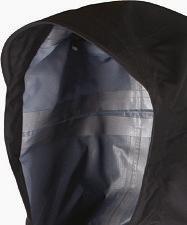

















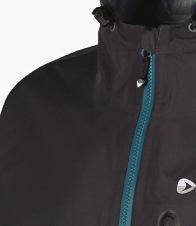
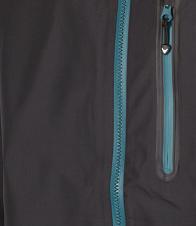
















































































ANGLERS VINDICATED AS AUTHORITIES SLAMMED FORINADEQUATE “SMOKE AND MIRRORS”APPROACHTOP OLLUTION
Inamajor win for anglers across Britain, the Court of Appeal has upheld ajudgmenti nf avour of those wh o ch alle ng ed the go ve rnm en t over pollution at Yo rksh ire’s Cos ta Bec k. Pic ke ri ng Fi sheryAssociationand Fish Legal hadpreviously wontheir case, whichattacked the authorities’ position on safeguarding rivers as vague and inadequate. Hoping forachangeofcourse,however, anglers were then shockedas the incomingLabour government turned theheatbackon campaignersinsteadofthe water industry.
In the retur nh earing,t he Court of Appeal concluded that the government’sapproach was indeed unlawful, with MrsJustice Leaven describing theprevious SecretaryofState’s approach as one of “smokeand mirrors”. It is hoped thatthe decision will
send shock-wavesnationwide, empowering other campaigners andwater users.
Fi sh Le ga l’sP ennyG an e described it as “a dayofmixed emotions”, statingthatwhilethey were “delighted”for campaigners, they were also “angry” at the government response.
“ThisGovernmentcameto power promisingtoclean up rivers, lakesand seas,” shesaid. “They couldhavedropped this appeal butinstead draggedout the legal process, wasting time and taxpayermoney trying to de fend conti nu ed i naction to restorenot only CostaBeck, but rivers nationwide.”
Fish Legal solicitor,Andrew Kelton addedthatthe win “sets out ab lu eprintf or restoring damagedrivers across the whole country. It should be aturning pointfor improvingriver health nationwide.”

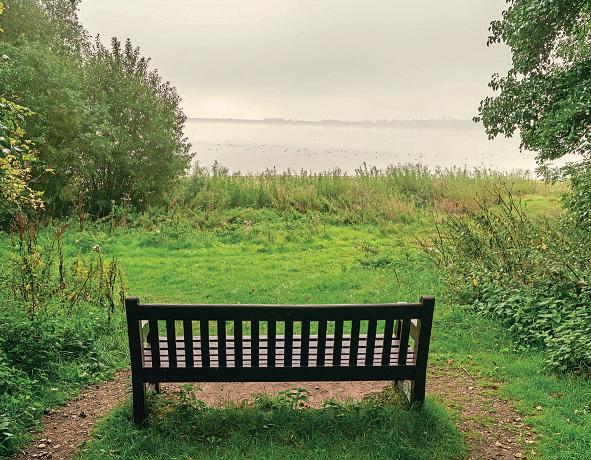
After months of closure and concern from fl y fishers,DraycoteFisher yisfinallyopen again,asof May1.
“Weare excited to be working closelywithSevern Trent to bring this fantastic fishery back to theforefrontofreservoir fly fishing”said an ofcial statementfromAnglianWater (AW) Fisheries. Originally,AW ha dh oped to open the fis heryonApril 1, butthe deal hit contractual lease problems late on. Tickets for Draycote are now available throughthe Anglian Water website. Planstoupgrade pontoons and include parking in fis hing permits we re also confirmed, along with the stagge red introduction of 29,0 00
rainbowtrout from Anglian's troutfarms
Meanwhile,Anglian Water ’s other troutfisheries, Grafham, Rutland, Ravensthorpe and Pitsford,havealready been stocked, areopen, andare fishing well Eyebrook Reser vo ir,which also cl osed along with Draycote after the deathoffisher y manager, Ifor Jones, will also survive, albeitasacoarse fishery, with no troutstocking,but with pikeand other species present for flyanglers. With the lease still being negotiated, an opening date is to be confirmed. In all likelihood, the 400-acre water will be runasa syndicate. Formore detailsand bookings, visitanglianwaterparks co.uk/fishing
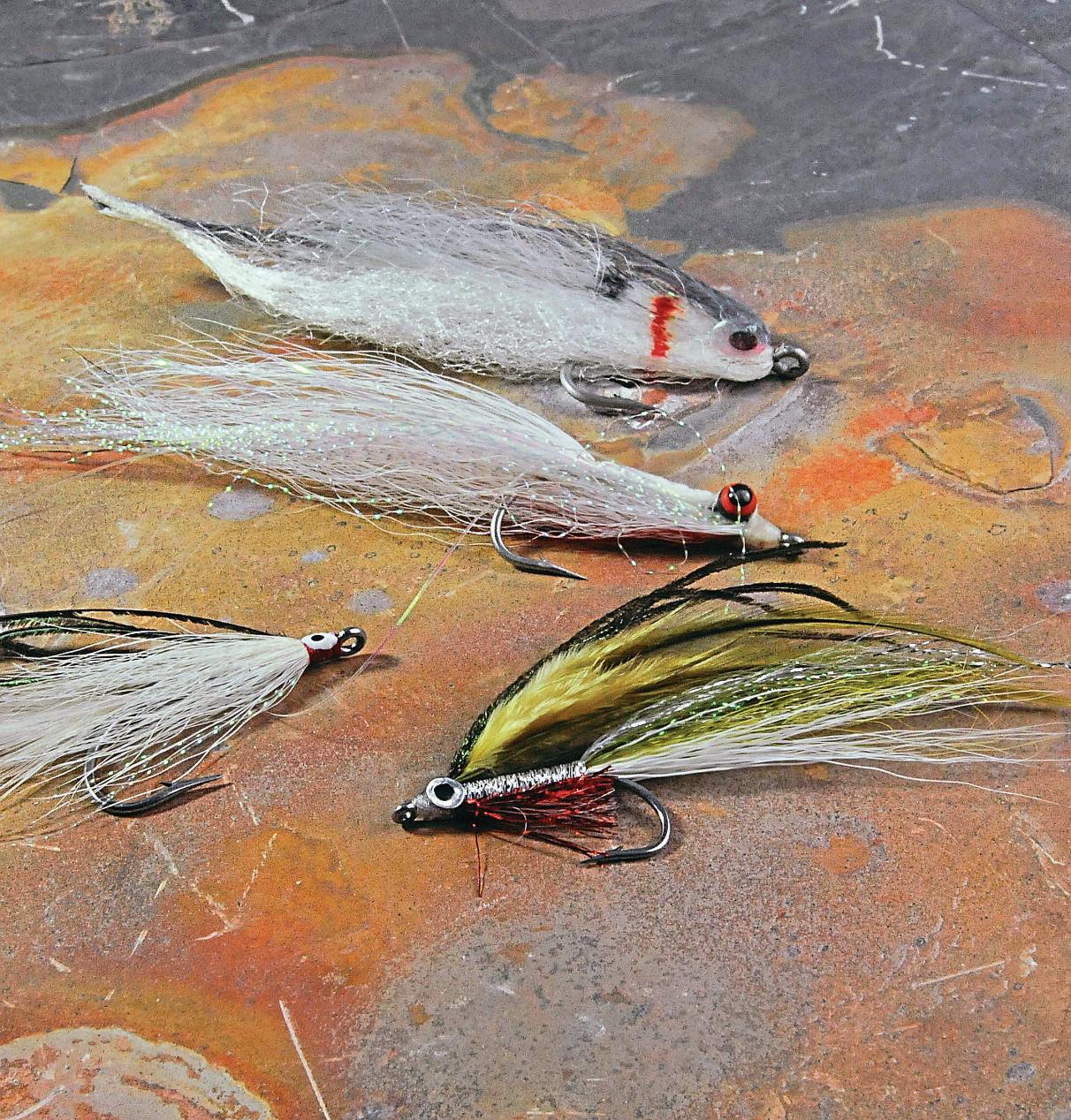
Is it movement,eyes, big eyes,flash, flared gills,ora combination of these facets of aBaitfish that makeour fly stand out to apredatory fish?

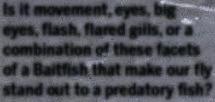
SIMONSINCLAIR explains whywe’ll neverfind theper fect fly
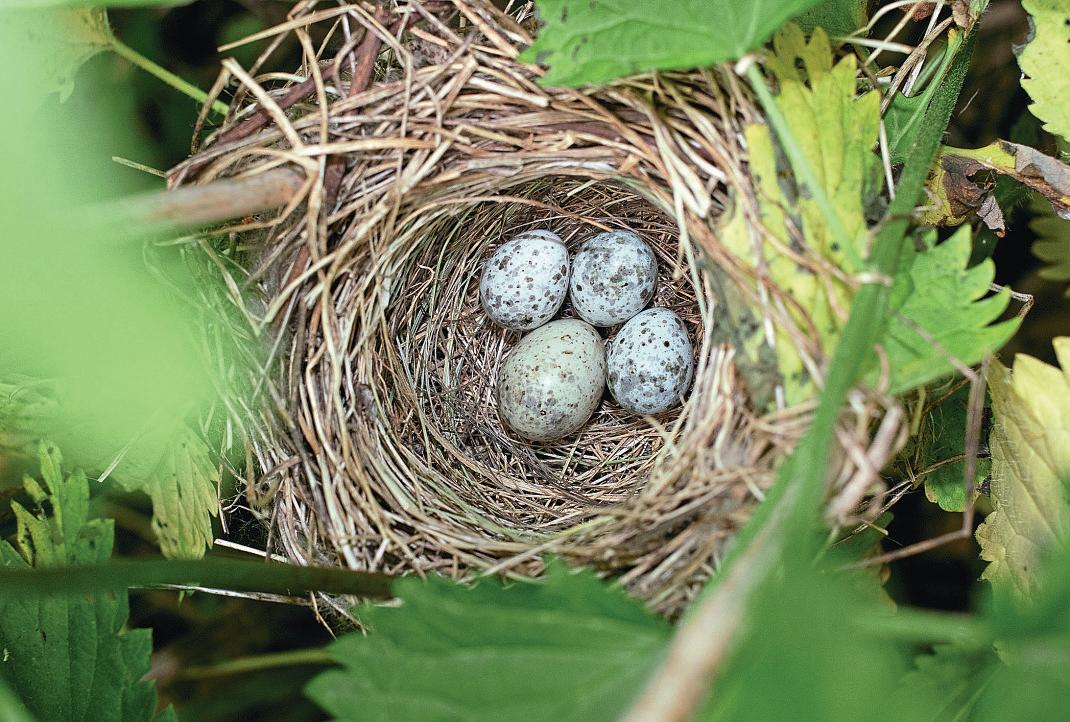
Afriend once described my pursuitofflyfishingas “a battle of wits between apoorcreature with abrain the size of apea… and afish”.
Now,Iaccept thatabantamweight intellect likeminewill neverfully understand thevast, unf athomable complexities of what’s goingonunder thewater.
Bu th av ing someho w managedtoearn aliving from my other passion–advertising –Itwiggedone daywhileporing throughmarketing textbooks that fly fishing andadvertising are both essentiallythe same t hing –t ry ing to under st an d the behaviour of creatures you can’t see,and then makethem do somethingyou want them to do
And the keytounderstanding the vast network-brain ofthe crowd is the same as it is for the instinctive,evolutionarybrain of the fish– basically, youneed to simplify everything down.
Identify the importantbehaviours, findwhattriggers them and then amplify it
And fly fishermenhaveknown al ot longer than ad men the be ne fito fa mp li fy in gs pe c if ic trigger-points.
Ad ding ap air of grea tb ig go og ly ey es ,e mb ellis hed
gill-covers or aswishing,swashbuckling tail can often getmore bites than amore natural-lookinglure.
It’s notgoing againstNature –it’sf ol lowing the evol utionarypattern thatNatureherself follows :t aket he st imuli that everyone recognises, and then justmakethem bigger and better.
Th ose big ,c om e-to-me eyes and that mouthwatering tail move menta re known by ev ol ut io nar yp sy ch ol og is ts as “supernormalreleasers”or “supernormalstimuli”.
Theterm wascoined by Richard Dawkins back in the 70sto describe motivators that“release” Fixed-Action Patternsofbehaviour (FAPs) .T hes ea re hardwired behaviours that,according to ethologists, are“non-divisible” and “run tocompletion”.
Th ei rp ur po se in Natu re is to save time.Ifanimalshad to consider everysingledecision, no th in gw ou ld ge td on e. So they evolve with built-in mental short-cuts –“if this happens,do that” –tobypass the consideration stage.
Th eH ar va rd psyc hologis t, Deirdre Barrett identified five main areaswheresupernormal stimulioperated forevolutionary
purposes –feeding,procreation, defence,nurturing andsocial interaction.
Basically, anyfeature that’s associated with food,sex and su rv iv al cr ea tes an in st an t impulse –and if youcan finda better manifestation of it,then it willoverstimulate you. You just can’thelpyourself,because the entireweightofevolution is telling youthis is an unmissable opportunity.
Whichishow those powerful impul se sa lso ge th ij acke dby parasites and opportunists to pursue theirown ends
We seeitwhencuckoos dupe smaller birds into hatching their eggs.Intests, parentbirds actuallypreferred bigger eggs (which signify healthier ofspring), with moreexaggerated markingsand more saturated colour to their own. They’re wired to spot the good signs, so the more intense th os es ign sa re,t he mo re th e birds prefer them. To the extent tha tw hen they we re gi ve n football-sized eggs,they’dkeep trying to hatchthem even though they kept sliding of.
Some orchids exudea“queen bee” aromasooverpoweringthat male bees actuallyprefer it to a real queen tied down adjacentto
it.The flowers become giantsex dolls for the drones, whoeventuallystagger away drunk and covered in pollen.
As Dawkins says,“the parasi te ’s ex ag ge ra ted st im ul us compensates for itsimperfect mimicry”.
We humans aren’t immune to it either.
Lipstickand eyeshadowexaggerate the keypartsofa prospective mate’s face.And men are ab solute su ckers for the hip/ waistratio of afemalebody. The narrowerthe waistcompared with what’s above or belowit, the more attractive the figure.Which is whygirls whowalkwithan overstated wiggleinthe hips are consideredbysome to be behaving in amore sexy way.
Of course,men are easier to fool than women. In evolutionaryterms, girls have alot more to lose by picking abad mate,so females need acombination of stimulation metrics where men onlyneed one.Wechaps can be eithera boob manorabum man, whereas Madam needs to see your wallet, your pecs and your car keys before sheagreestodinner.
Butthen, it does explain why aman doesn’t have to be particularlyhandsometoget amate.


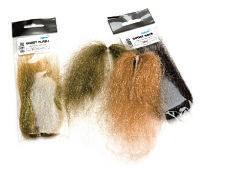

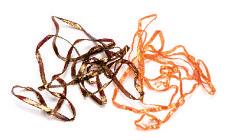
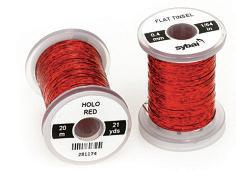





















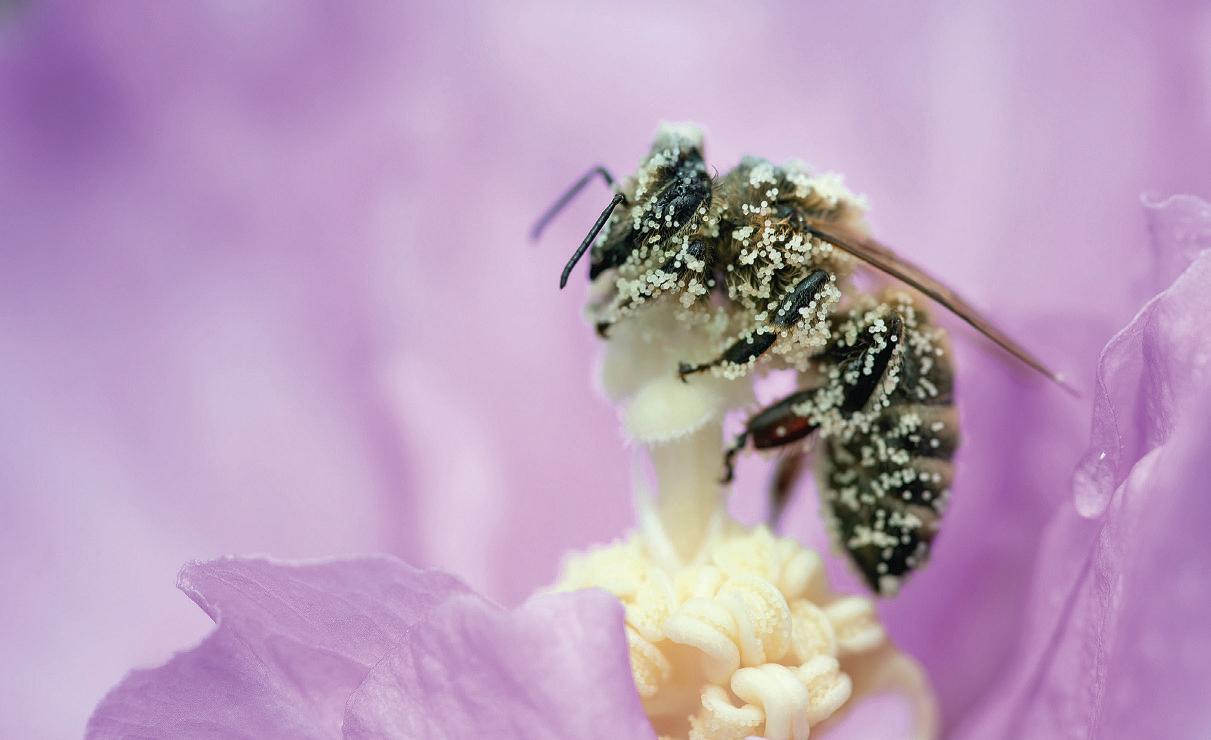
Adrone coveredinpollen. To enhance their pollination, some orchids exude a“queen bee” aroma so overpowering that male bees actually prefer it to arealqueen.


➸
He can be five foot three an bald,but give him adinner su aprivate jet and aholidayhom in Mu st iq ue and his poten little cocktail of super-stimuli short-circuitall the negativesi some women’s minds.
, but a d er , a private and a holiday home t t all s in rs. just doing wired them r similar reasons, toy d s wo rturing instincts. The ampli f eatures – b , etc – combine to aw ctions y
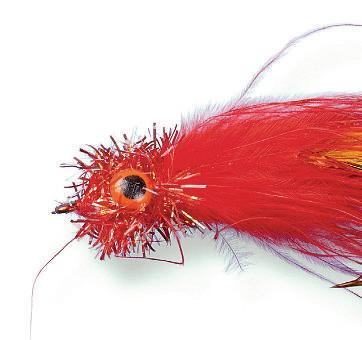
Th ey’ re not being daft, gold-diggers. They’re justdoing what Nature wiredthem to do Forsimilar reasons, toydog are bred to appeal to women nurturing instincts. Theamp fied “b abyish” features –b eyes, flufness, stubby legs,etc –combine to melt away all other distractions and focus their gooey eyes on the little beast.
Wh en hu mans live di n the wild and animalf at wasarare and valuable commodity,they would takeany opportunity to gobble up as much of it as they could. Whichiswhy youfind it so hard to resistaMcDonalds or apizza now.
So you’dthink thatbyextendinghyper-realitywithout limits,a fisherman can create the perfect, never-fail fly.
So can an uncheckedarmsrace of ever brighter gills, more googly eyes and wiggliertails transport us to afish-every-cast Nirvana?

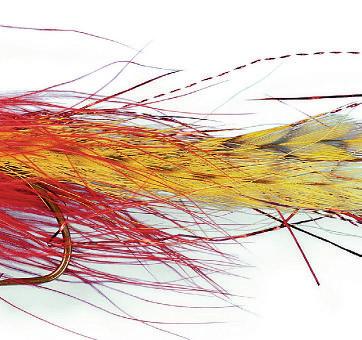
The susceptibility of rainbowtrout to our ‘special’ fly decreases as theysee moreand moreexaggerated fly patterns.
The rainbow trout our y see more and more e ated patterns
Well, no,likemostgoodthings, it doesn’tworklikethat. As the evolutionar ybiologist, Leslie Orgel, said, “Evolution is cleverer than youare”.
Where there’s risk involved, Nature always providesa circuitbreaker.Ifthingsget toosilly, common sense overrides the FAP.
Yes– cynicismhas an evolutionarypurpose,too
In this vein, the Dutchethologist, OistenHaugsten Holen and his chums from Oslo University described their experiments on parasitic beetles and their host animals in apaper to the Royal Society in 2001.
They found thatthe stronger the stimulus, the stronger the response –uptoa point. Butin situations of highinfestation,or when the riskofdeath to the host animal wasgreater,the stimulus wasrejected.
As the hos ta nim al ’s re jection threshold waslowered, the beetles then reve rse-evo lved, showingless intensestimuliin aracetothe bottom. In other words, they became more realistic, going full circle back to the point wheretheynolongerstood out from whatever they were trying to represent. And then the whole game began all over again.
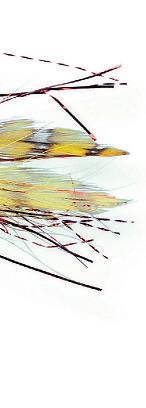
So thesusceptibilityofrainbowtrout decreases as they see more and more exaggerated fly patterns. At whichpoint anglers have to st art de vising more natural-looking patterns –only forsomegeniustotweak some minor detail and have fishthrowing themselvesathis feet again. It ’s ac yc le being repea ted millions of times aminute across th en at ur al wo rl d, so we ’r e unlikelyevertoreach astage where we can create the perfect, irresistible lure
Butthen again, fishing would no longer be anyfun if we did, would it? ■
SimonSinclair’sbackgroundisinadvertising,however,his otherpassionsare fly fishing,along with rowing andwriting.and he is theauthorof Raving Adman.For many years, he haswritten advertisingcampaigns formajor fly-fishingcompanies,which allowedhim to fishwithmanygreat fly fishermen,including FF&F T’sHowardCroston andPaulProctor.Whilsthesaysheisn’t thebestanglertograce thesepages,hehas managedto absorb theirwisdom.









